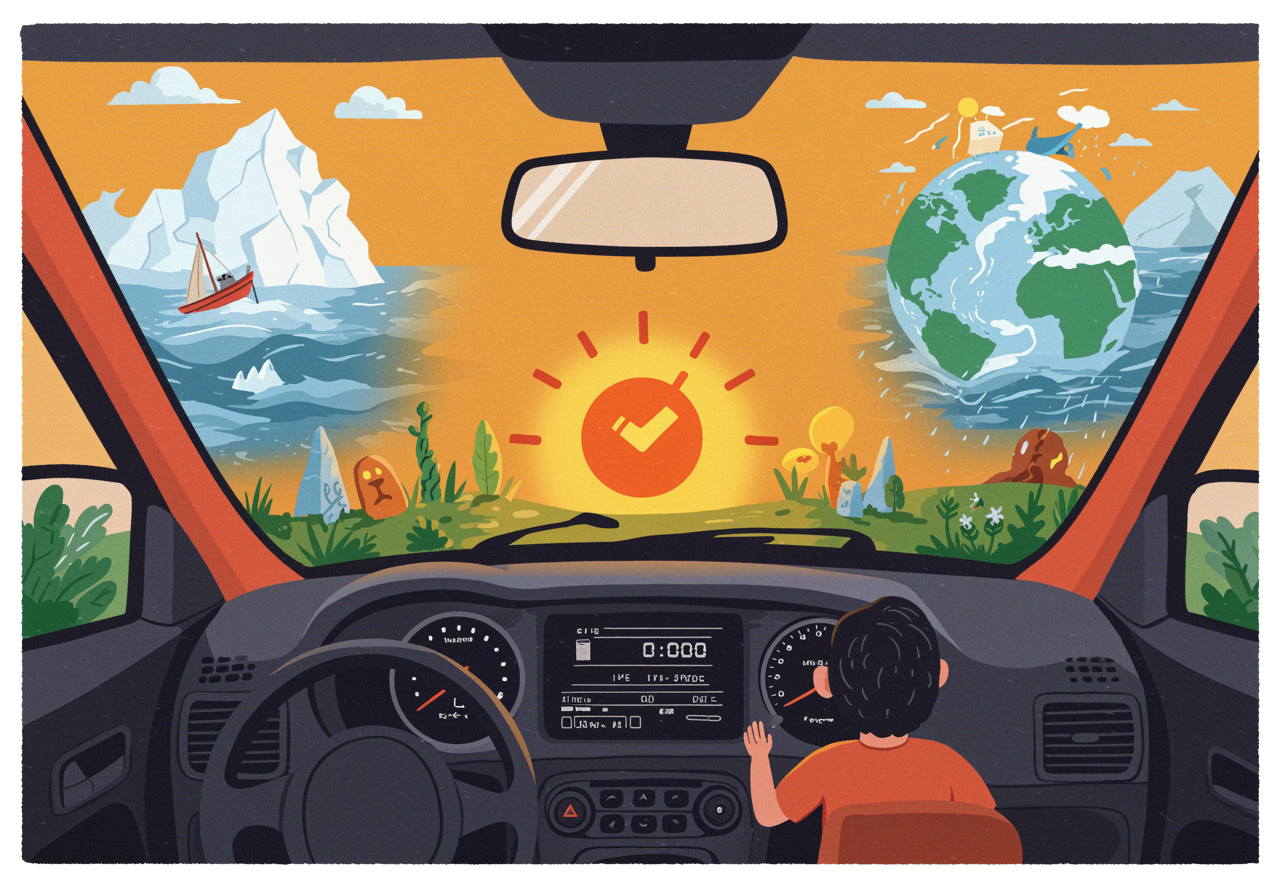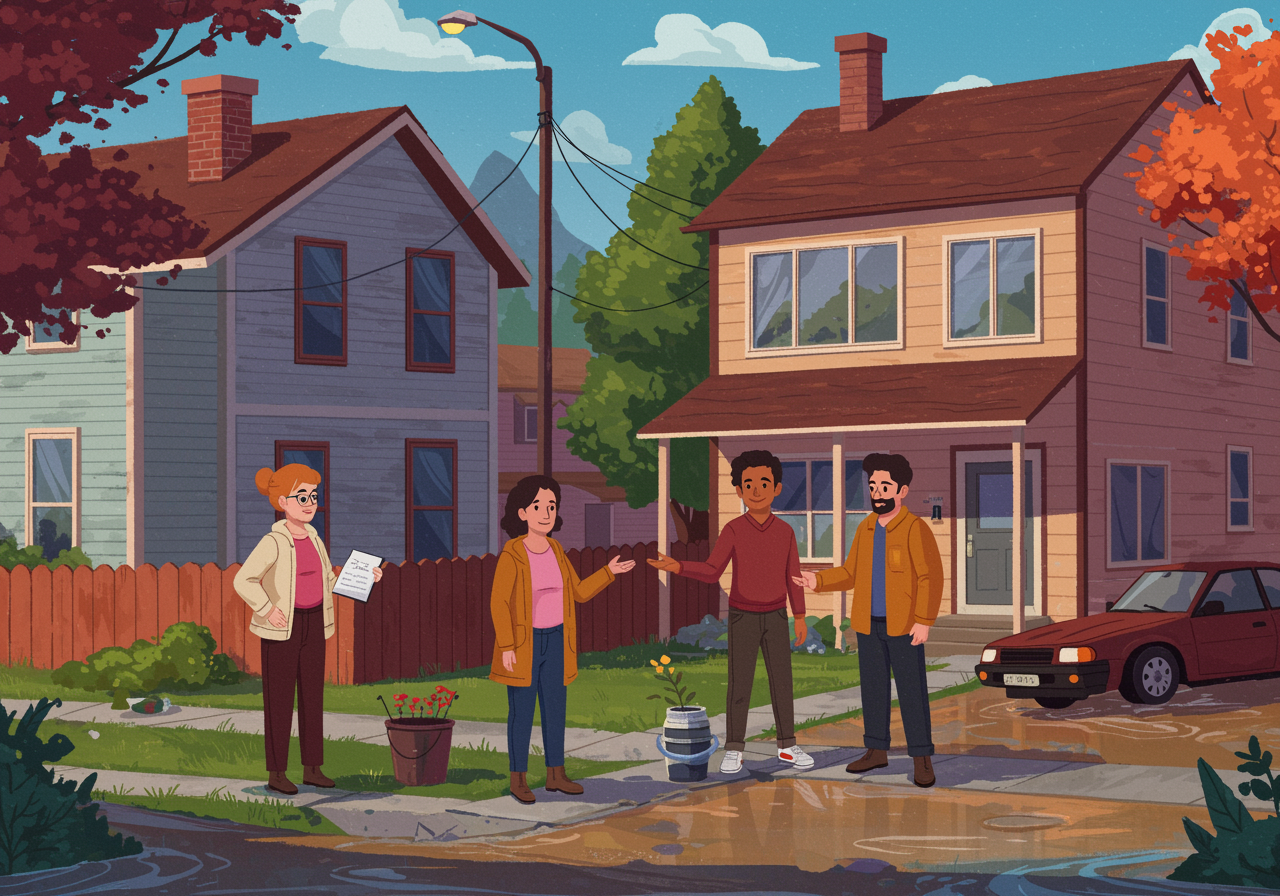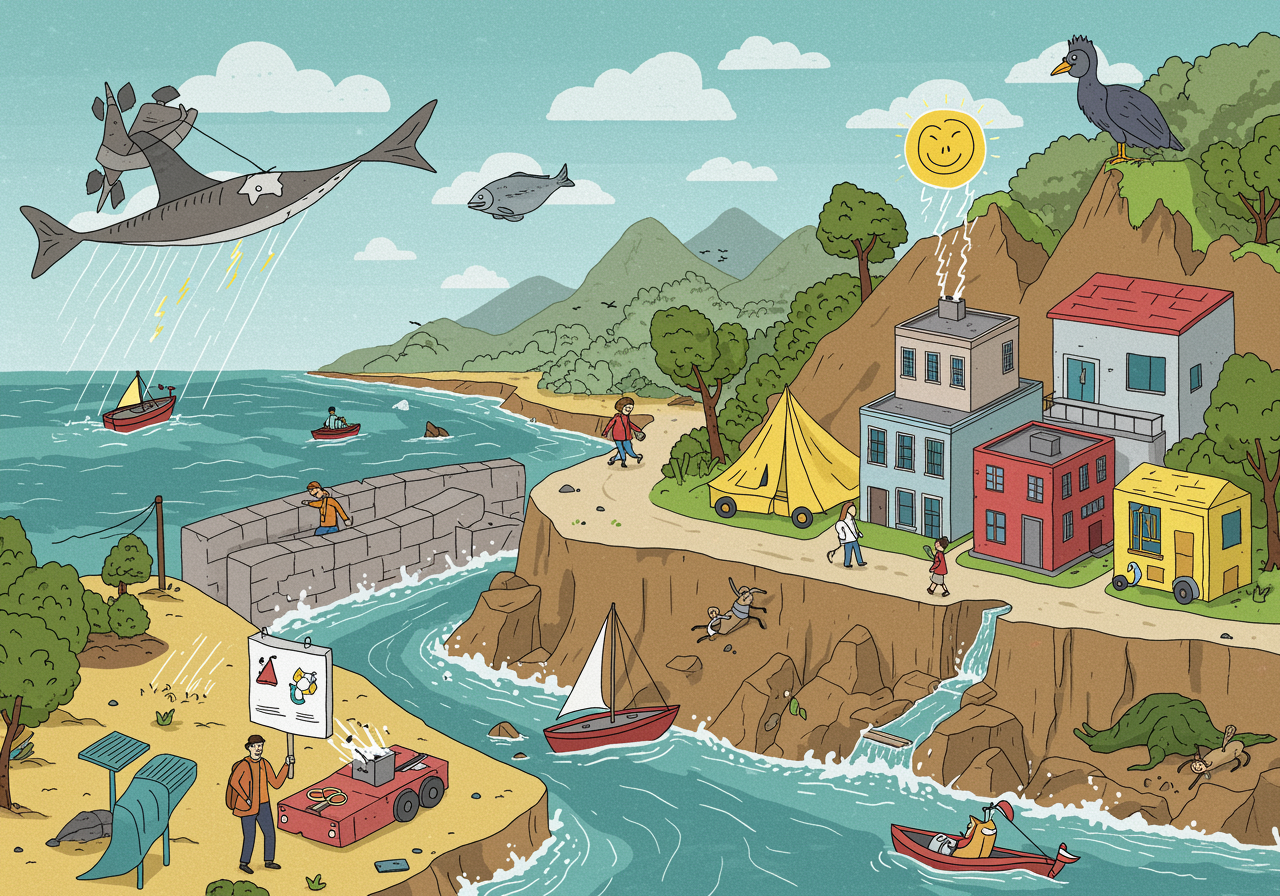When Earth’s Check Engine Light Keeps Blinking: What Happens Next?

Exploring the ripple effects of ignoring our planet’s warning signals
Discover what scientists predict could happen if we keep hitting the snooze button on climate warnings – and why understanding these possibilities empowers us to make better choices.
Overview
Think about your family car's dashboard – when that check engine light comes on, ignoring it might seem easier than dealing with it. But we all know what happens next: small problems become big, expensive ones. Scientists have been watching Earth's 'warning lights' for decades, and they're getting brighter and more frequent. Understanding what could happen if we keep ignoring these signals isn't about scaring anyone – it's about making informed choices together as a family and community.

Understand in 30 Seconds
Get up to speed quickly
- It's Like Ignoring a Leaky Roof: When you ignore a small leak, it eventually damages the whole house. Climate warnings work the same way – small changes now can lead to much bigger problems later.
- The Domino Effect is Real: One ignored warning creates a chain reaction. Rising temperatures melt ice, which raises sea levels, which floods coastal cities – each problem creates new ones.
- Some Changes Can't Be Undone: Unlike fixing a car, some climate changes are permanent. Once certain ice sheets melt or species go extinct, we can't just reverse the process.
- It's Not All Doom and Gloom: Understanding risks helps us prepare and adapt. Humans are incredibly good at solving problems when we work together and face them head-on.
Real Life Scenario
Situations you can relate to
Imagine your neighborhood has a creek that occasionally floods after heavy rain. The city keeps getting reports and warnings, but they decide it's too expensive to fix right now. What starts as puddles in a few yards eventually becomes flooded basements, then damaged roads, then businesses closing because customers can't reach them. The 'small' flooding problem becomes a community crisis that affects everyone's daily life – from getting to school to buying groceries. Now imagine this happening on a global scale with things like rising sea levels, changing weather patterns, and shifting growing seasons. The question isn't whether change will happen, but how much we'll let accumulate before we act. What do you think would motivate your community to fix that flooding problem?

Role Play
Spark a conversation with “what if” scenarios
What if you were the mayor of a coastal city and scientists warned that sea levels would rise 2 feet in 20 years?
- Role play: Take turns being the mayor, a scientist, and a worried parent. Discuss what decisions you'd make about building sea walls, moving buildings, or finding new solutions.
What if you were a farmer and weather patterns started changing, making it harder to grow your usual crops?
- Role play: One person plays the farmer, another plays a climate scientist giving advice. Explore what creative solutions you might try together.
What if you were designing a city for the year 2050, knowing climate change is happening?
- Role play: Sketch or describe your climate-ready city together. What features would you include to handle heat waves, flooding, or changing weather?
FAQs
Frequently asked questions people want to know
Are these predictions definitely going to happen?
Scientists use probability – like weather forecasts. They're very confident about trends (like 'it will be warmer') but less certain about exact details (like 'exactly 3.2 degrees warmer'). The goal is to prepare for likely scenarios.
Why don't we just fix everything right now?
Great question! It's like asking why we can't instantly fix all traffic problems. It takes time, money, cooperation between countries, and new technology. But we are making progress in many areas.
Will technology save us?
Technology is definitely part of the solution – like solar panels and electric cars. But technology works best when combined with changes in how we live and work together.
Examples in the Wild
See how this works day to day
- Miami Beach has installed over 80 water pumps to handle flooding that now happens on sunny days due to rising seas (National Geographic)
- Wine grape growing regions are shifting north as temperatures warm, changing century-old farming traditions (NASA Climate Change)
- The Netherlands has built floating neighborhoods and water plazas that can handle both drought and flooding (Climate Central)
- Some Pacific Island nations are buying land in other countries as backup plans for their populations (BBC Climate News)
In Summary
What you should know before you start
- Ignoring climate warnings creates bigger, harder-to-fix problems later – like ignoring a small leak that eventually damages the whole house
- Changes create chain reactions: melting ice raises seas, changing weather affects food growing, extreme events stress communities
- Some changes become permanent once they reach tipping points, making prevention easier than reversal
- Understanding risks helps families and communities prepare, adapt, and make better choices together
Pro-tip for Parents
You got this!
If your teen seems overwhelmed or hopeless about climate change, focus on the amazing human problem-solving happening right now. Share stories of young inventors, community solutions, and breakthrough technologies. Frame it as 'we're living through the greatest problem-solving challenge in human history' rather than 'everything is doomed.' Help them see they're part of the solution generation, not just inheriting problems.

Keep an Eye Out For
Find these examples in everyday life
- News about cities adapting to climate change with creative solutions like floating farms or heat-resistant buildings
- Stories about young inventors and entrepreneurs creating climate solutions
- Weather events in your area that spark conversations about changing patterns and community preparedness
Explore Beyond
Look up these related research topics
- How do scientists make climate predictions and why are they getting more accurate?
- What amazing climate solutions are young people around the world creating right now?
- How did past civilizations adapt to major environmental changes?